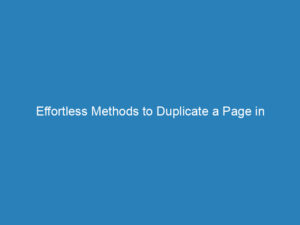
Do WordPress Tags Impact SEO? Insights and Best Practices
When it comes to optimizing your website for search engines, you might wonder if WordPress tags play a significant role. While their impact isn’t straightforward, they can contribute to your overall SEO strategy. In this article, we’ll delve deeper into how WordPress categories and tags function and their potential effect on your site’s visibility.
Understanding WordPress Categories and Tags
Categories and tags are essential elements of WordPress that help you organize your content effectively. They serve as labels that categorize your posts, making it easier for both users and search engines to navigate your site.
In the Block Editor, you can add these labels in the Document tab found in the right sidebar. Here’s a quick breakdown of their differences:
- Categories: Think of categories as the chapters of a book. If you frequently write about a specific topic, creating a category for it can be beneficial. For example, if you run a culinary blog, you might have a category titled ‘Recipes’. Posts can belong to multiple categories, allowing for greater flexibility.
- Tags: Tags function more like keywords that describe the specifics of your post. They act as an index, guiding readers to related content. For instance, a pizza recipe might include tags such as ‘homemade’, ‘pizza’, ‘Margherita’, and ‘gluten-free’.
By utilizing categories and tags effectively, you not only enhance user navigation but also assist search engine crawlers in understanding your site’s structure better.
Do WordPress Tags Actually Help with SEO?
While categories and tags alone aren’t critical for SEO, they can influence other aspects that contribute to your search engine rankings, such as user experience (UX). It’s important to note that WordPress tags do not operate like hashtags on social media. Overloading your posts with tags won’t yield the results you might expect.
In fact, users are unlikely to discover your content solely through tags. If your posts are cluttered with excessive descriptors, it can hinder navigation and negatively impact your rankings. Categories are mandatory for each post; if you don’t select one, WordPress will label it as ‘Uncategorized’. However, tags are optional, and using them judiciously can enhance user experience by encouraging visitors to explore related content, potentially increasing the time they spend on your site.
It’s advisable to avoid duplicating categories and tags, as having similar labels can create competition within your own pages, making it harder for Google to rank them effectively.
Final Thoughts
While WordPress categories and tags are primarily organizational tools, their thoughtful implementation can provide indirect benefits to your SEO strategy. By improving site navigation and user engagement, they help create a better overall browsing experience, which is something search engines value.
Have you experimented with categories and tags on your WordPress site? Share your experiences or questions in the comments below!
This rewrite enhances the original text’s clarity, coherence, and localization while maintaining an informative and engaging tone.

